© 2025 Center for Digital Innovation and AI
Le mercredi 4 octobre 2023, Madame Wadad Wazen Gergy, Directrice de l’UNTE a participé à la table ronde lors de la signature de l’ouvrage « De l’Intelligence » du publicitaire, fondateur et actuel président d’honneur de la société Leo Burnett M. Farid Chehab qui s’articule autour des différentes approches de l’intelligence et sa relation avec les divers domaines, à savoir la science, la conscience, la religion, l’amour, la culture, l’humanité et les valeurs.
Mrs. Wazen's sharing of experiences aligns with the author's assertion that the digital advancement is relentless, and each one of us, as an actor in the field of education, is called upon to awaken our curiosity in order to build dynamic educational systems that do not rely solely on memory but prioritize the curiosity essential to mental energy, the primary engine of education. In addition to curiosity, creativity and soft skills should be incorporated, shaping and molding the individual and the learner through a holistic approach.
L’auteur ajoute qu’il est important de « dépoussiérer des strates de zones de confort et réinventer l’éducation est un immense défi » et de croire en « cette nouvelle ère qui introduit la complexité qui a besoin de cerveaux mettant leur énergie mentale ensemble pour avancer ». Madame Wazen ajoute que dans le monde de l’éducation aujourd’hui nous parlons de reskilling et de upskilling et nous œuvrons à former et accompagner les étudiants pour les nouveaux métiers les armant par les compétences complexes à travers des travaux qui suscitent des réflexions de groupe et un esprit créatif et innovant surtout avec l’émergence de l’intelligence artificielle. Ce chantier de transition et de changement a déjà été lancé et déclenché par la crise sanitaire il y a quelques années et se trouve en cours de progression aujourd’hui vu l’évolution rapide du champ de l’intelligence artificielle qui bouleverse tous les domaines. C’est dans ce sens qu’un travail collectif s’effectue dans le domaine de l’éducation pour revisiter la gouvernance, les programmes, les référentiels de compétences afin d’accompagner les étudiants et les inciter au développement de nouvelles compétences leur permettent de solutionner, de développer, d’inventer, d’avoir un esprit critique et surtout de travailler en équipe pour se lancer dans le monde du travail qui est en changement continu. Il est important de s’adapter aux mutations et de travailler dans une approche transversale et multidisciplinaire permettant à chacun de fusionner en équipe.
Les deux avis se retrouvent pour affirmer que l’éducation ne doit plus chercher le premier mais le meilleur qui est celui « le plus apte à coopérer, écouter, partager et construire sur le mental de l’autre dans une dynamique créatrice ».
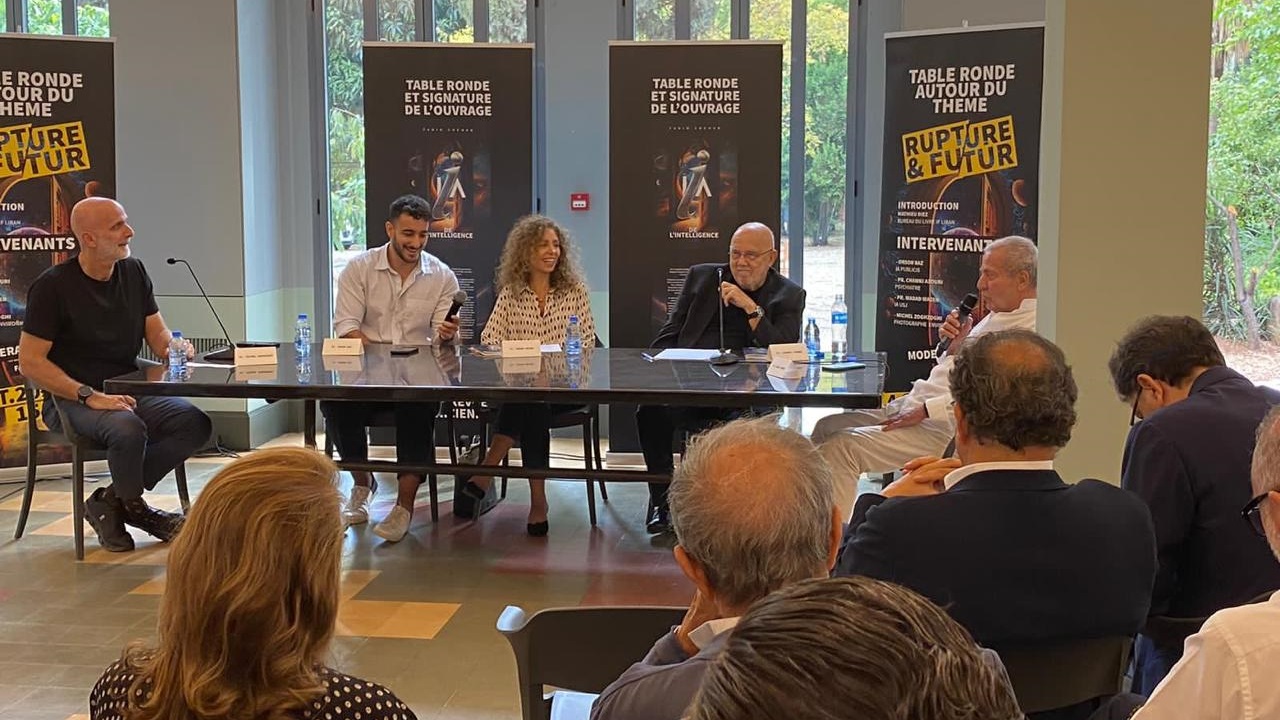
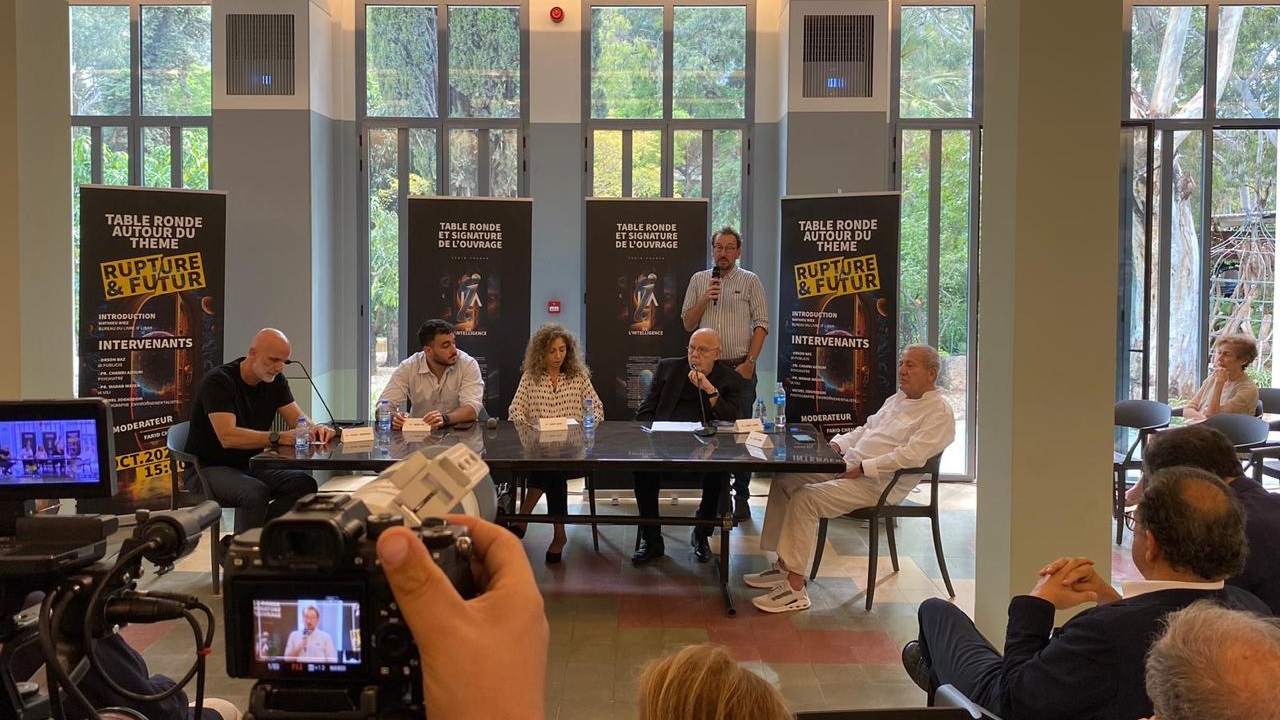
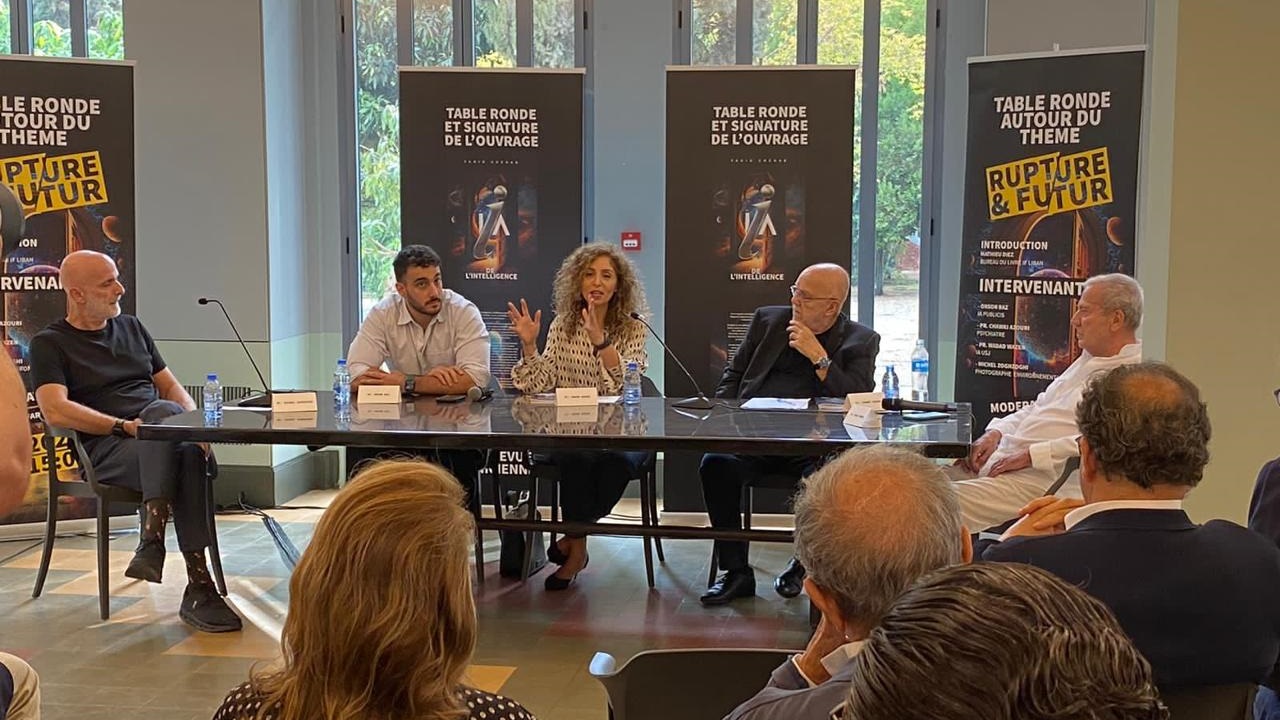
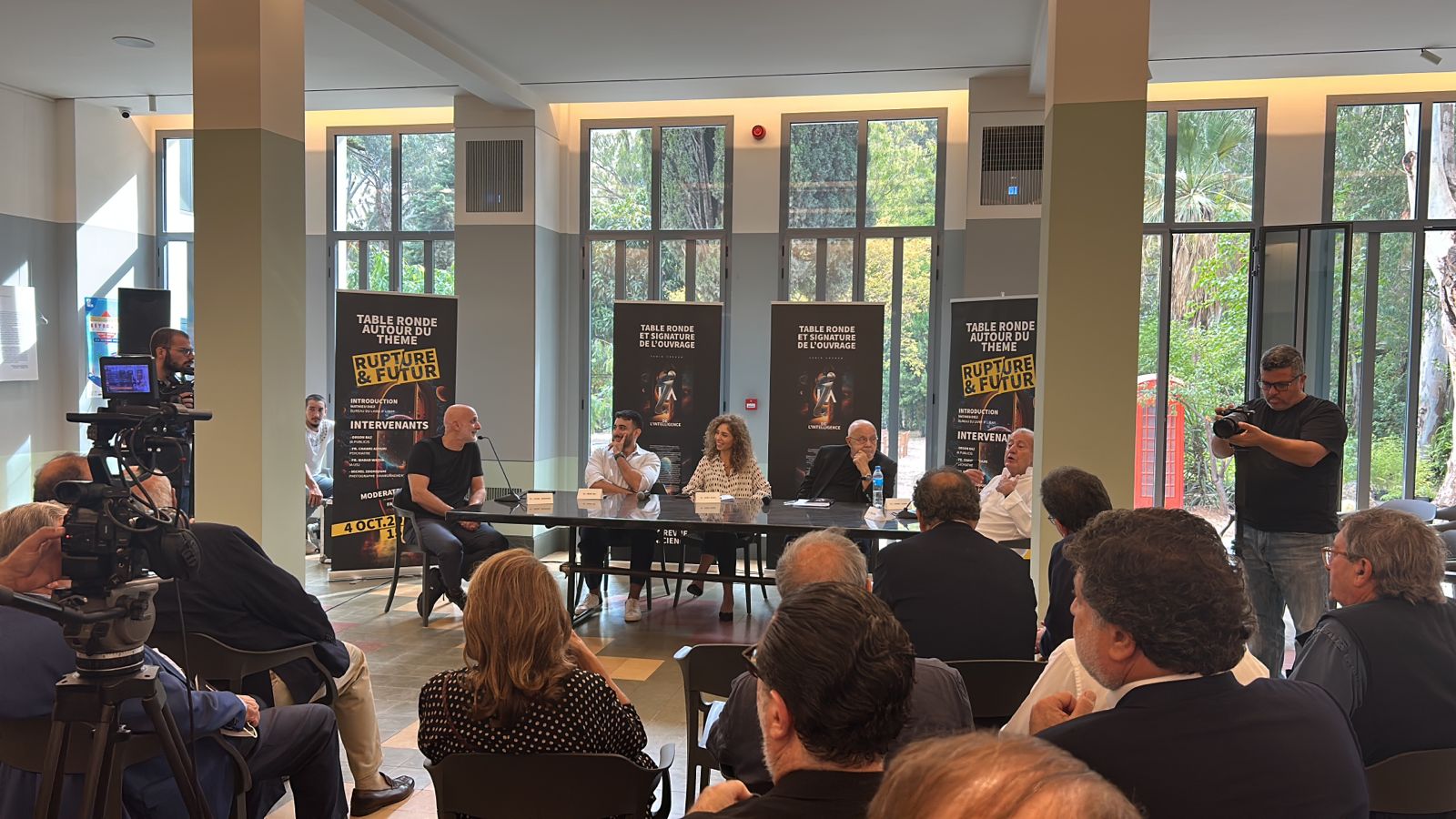
On Wednesday, October 4, 2023, Mrs. Wadad Wazen Gergy, Director of Unit of New Educational Technologies (UNTE) took part in a stimulating roundtable discussion held during the book launch event for « De l’Intelligence, » authored by esteemed advertising executive, founder, and current honorary president of Leo Burnett, Mr. Farid Chehab. This book delves into a myriad of perspectives on intelligence and its relationship with diverse domains such as science, consciousness, religion, love, culture, humanity, and values.
Mrs. Wazen’s sharing of experiences aligns with the author’s assertion that the digital advancement is relentless, and each one of us, as an actor in the field of education, is called upon to awaken our curiosity in order to build dynamic educational systems that do not rely solely on memory but prioritize the curiosity essential to mental energy, the primary engine of education. In addition to curiosity, creativity and soft skills should be incorporated, shaping and molding the individual and the learner through a holistic approach.
The author underscores the pivotal need to « break free from comfort zones and redefine education, an undertaking of immense challenge. » Indeed, we find ourselves in an era marked by complexity, necessitating the collective pooling of intellectual resources to move forward. Mrs. Wazen notes that in the contemporary educational landscape, the conversation revolves around reskilling and upskilling students, preparing them for new career landscapes by equipping them with complex skills through group projects that stimulate critical thinking and foster creativity and innovation, especially in the face of the emergence of artificial intelligence.This transformation and evolution were set in motion several years ago due to a health crisis and are currently gathering momentum, driven by the rapid advancements in artificial intelligence, which are disrupting conventional sectors. In this context, collaborative work is taking place in the field of education to revisit governance, programs, and competency frameworks in order to support students and encourage the development of new skills that enable them to problem-solve, innovate, think critically, and, most importantly, work as a team to navigate the ever-changing world of work. It is crucial to adapt to these changes and work in a cross-functional and multidisciplinary approach that allows everyone to merge into a team.
Both viewpoints converge in asserting that education should no longer seek the first but the best, which is the one « most capable of cooperating, listening, sharing, and building upon each other’s mental faculties in a creative dynamic. »




Leave a Reply Cancel reply
CINIA is located on the 7th floor of the USJ Human Sciences Campus on Damascus Street in Beirut.
Do not hesitate to contact us at cinia@usj.edu.lb
or call us at +961 1 421 000 extension 5923/5924.
© 2025 Center for Digital Innovation and AI. Created for free using WordPress and Kubio
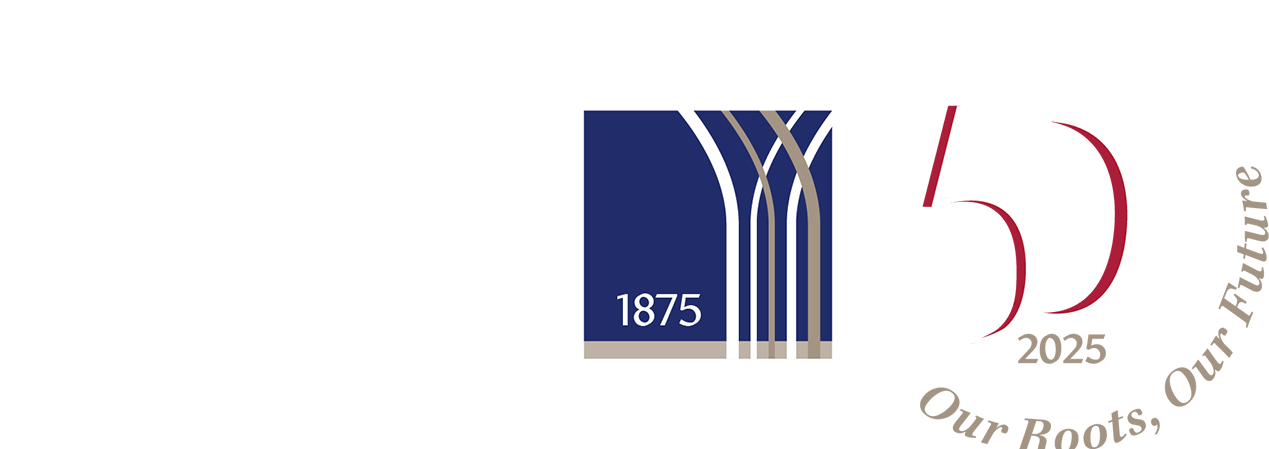
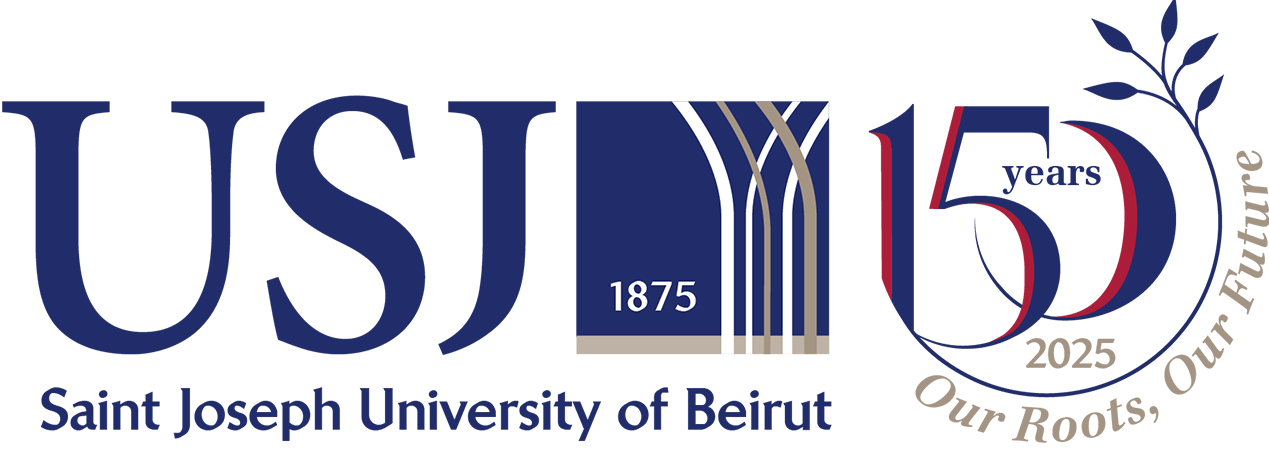
No responses yet